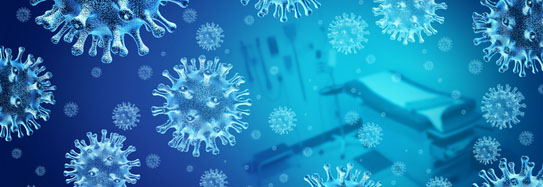Autoimmune diseases are illnesses that cause your immune system to attack your body’s healthy cells and tissues. Your immune system is made up of cells, proteins, and organs. It’s your defense system from many illnesses. When it is working as it should, your immune system recognizes dangers to your body and fights bacteria, viruses, and other dangerous microorganisms. If you develop an autoimmune disease, your immune system can no longer tell the healthy cells from dangers to the body.
Autoimmune diseases are surprisingly common; there are more than 80 types. It’s estimated that more than 24 million people in the United States have some form of autoimmune disease, and the incidence is rising. Some are well known, such as rheumatoid arthritis or type 1 diabetes, while others, like scleroderma, are rare.
These diseases can affect any part of your body. This is a small example:
- Thyroid
- Blood vessels
- Liver
- Kidney
- Uterus
- Brain
Some diseases such as inflammatory bowel disease might affect only one part of the body, but other conditions can affect several areas. Diabetes, which increases your blood sugar (glucose), can affect your eyes, skin, kidneys, blood vessels, and more.
Autoimmune diseases do not cause sepsis. Still, people with certain types of autoimmune diseases are at higher risk of developing infections, which can cause sepsis. As well, some medications used to treat some autoimmune disorders can weaken your immune system, making it easier for you to develop an infection. This includes treatments with corticosteroids (like prednisone), chemotherapy, and immunotherapy.
Sepsis, which was often called blood poisoning, is the body’s life-threatening response to infection. Like strokes or heart attacks, sepsis is a medical emergency that requires rapid diagnosis and treatment.
Sepsis and septic shock can result from an infection anywhere in the body, such as pneumonia, influenza, or urinary tract infections. Bacterial infections are the most common cause of sepsis. Worldwide, one-third of people who develop sepsis die. Many who survive are left with life-changing effects, such as post-traumatic stress disorder (PTSD), chronic pain and fatigue, organ dysfunction (organs don’t work properly), and/or amputations.
Some autoimmune diseases that increase your risk of infection include:
- Diabetes (skin is fragile and slow to heal)
- Inflammatory bowel disease, such as Crohn’s disease and ulcerative colitis (perforated bowel)
- Myasthenia gravis (may cause paralysis, choking, etc.)
- Psoriasis (cracked skin may become infected)
- Rheumatoid arthritis (as a result of certain types of treatment)
- Lupus – systemic lupus erythematosus
- Sarcoidosis
Suggested Citation:
Sepsis Alliance. Sepsis and Autoimmune Diseases. 2025. https://www.sepsis.org/sepsisand/autoimmune-diseases/
Reviewed May 9, 2025.








































